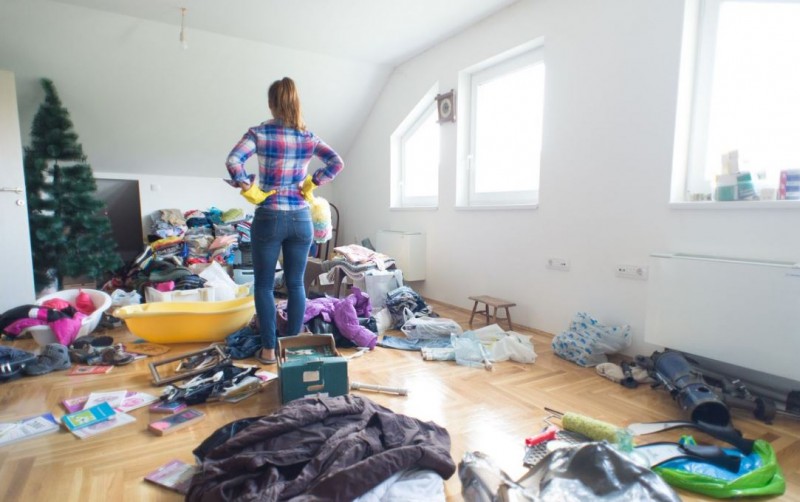
Introduction
In our fast-paced modern world, it's not uncommon for our living spaces to become cluttered and disorganized. From overflowing closets to crowded countertops, clutter can accumulate and have a significant impact on our psychological well-being. In this article, we will explore the various psychological effects of living in a cluttered environment and the importance of maintaining a clean and organized living space.
The Impact of Clutter on Mental Health
Increased Stress and Anxiety
Living in a cluttered environment can contribute to increased stress and anxiety levels. Clutter creates visual chaos, making it difficult for our brains to relax and focus. It overwhelms our senses, leading to a constant feeling of being overwhelmed and on edge. The presence of clutter can also make it challenging to find necessary items, adding to our stress levels.
Reduced Productivity and Concentration
A cluttered environment can hinder our ability to concentrate and be productive. When our physical space is cluttered, our minds often mirror this chaos, resulting in decreased focus and mental clarity. It becomes harder to prioritize tasks and stay organized, leading to a decline in overall productivity.
Negative Impact on Mood and Well-being
Living in a cluttered environment can have a negative impact on our mood and overall well-being. Cluttered spaces can evoke feelings of guilt, shame, and dissatisfaction. The constant reminder of unfinished tasks and disorganization can dampen our spirits and affect our emotional state. Additionally, clutter can create a sense of visual heaviness, making it difficult to find peace and tranquility in our living spaces.
The Connection Between Clutter and Mental Health Disorders
Obsessive-Compulsive Disorder (OCD)
For individuals with OCD, clutter can be particularly distressing. OCD is characterized by intrusive thoughts and compulsive behaviors. Clutter can trigger obsessive thoughts and lead to repetitive cleaning or organizing rituals. It becomes a vicious cycle, with clutter causing distress and compulsive behaviors providing temporary relief.
Depression
There is a strong correlation between clutter and depression. Living in a cluttered environment can make individuals feel overwhelmed and trapped, leading to a sense of hopelessness and sadness. It becomes challenging to find motivation or pleasure in daily activities when surrounded by disarray.
Anxiety Disorders
Anxiety disorders, such as generalized anxiety disorder and social anxiety disorder, can be exacerbated by clutter. Cluttered environments can trigger feelings of unease and restlessness, intensifying anxiety symptoms. The constant presence of clutter can create a perpetual state of worry and uneasiness.
The Benefits of a Clean and Organized Living Space
Improved Mental Clarity and Focus
Maintaining a clean and organized living space promotes mental clarity and enhances focus. When our surroundings are free from clutter, our minds can relax and function optimally. We can prioritize tasks more effectively and engage in activities with greater concentration.
Reduced Stress and Anxiety
A clean and organized living space can significantly reduce stress and anxiety levels. Decluttering our environment creates a sense of order and control, alleviating the overwhelming feelings associated with clutter. It provides a visually soothing environment that promotes relaxation and peace of mind.
Enhanced Productivity and Creativity
A clutter-free environment fosters productivity and creativity. With a clean space, our minds are free to think creatively and generate new ideas. We can approach tasks with a clear mindset, leading to improved efficiency and productivity.
Conclusion
Living in a cluttered environment can have profound psychological effects, including increased stress, reduced productivity, and negative impacts on mental health. It is essential to recognize the importance of maintaining a clean and organized living space for our overall well-being. By decluttering and creating an environment that promotes mental clarity and peace, we can improve our quality of life and nurture our psychological health.
Maulana Tauqeer's Dreadful Plan: Converting Modi-Yogi to Islam, Enforcing Sharia in India